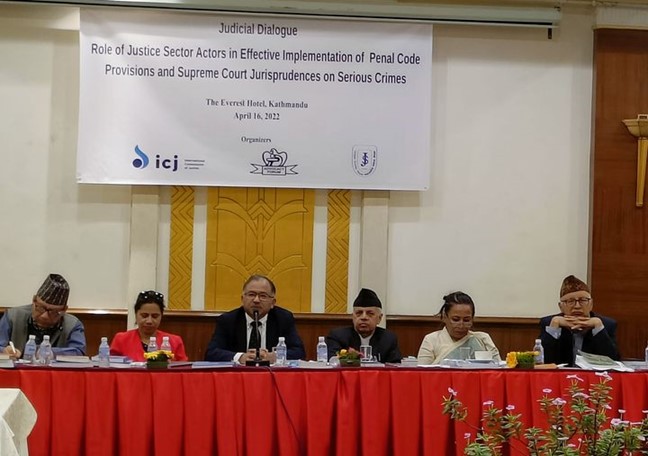
Apr 30, 2022 | News
On 16 April 2022, the ICJ, together with Advocacy Forum-Nepal and the Judges Society-Nepal, organized the National Judicial Dialogue on the Role of Justice Sector Actors in Effective Implementation of Criminal Code Provisions and Supreme Court Jurisprudence on Serious Crimes.
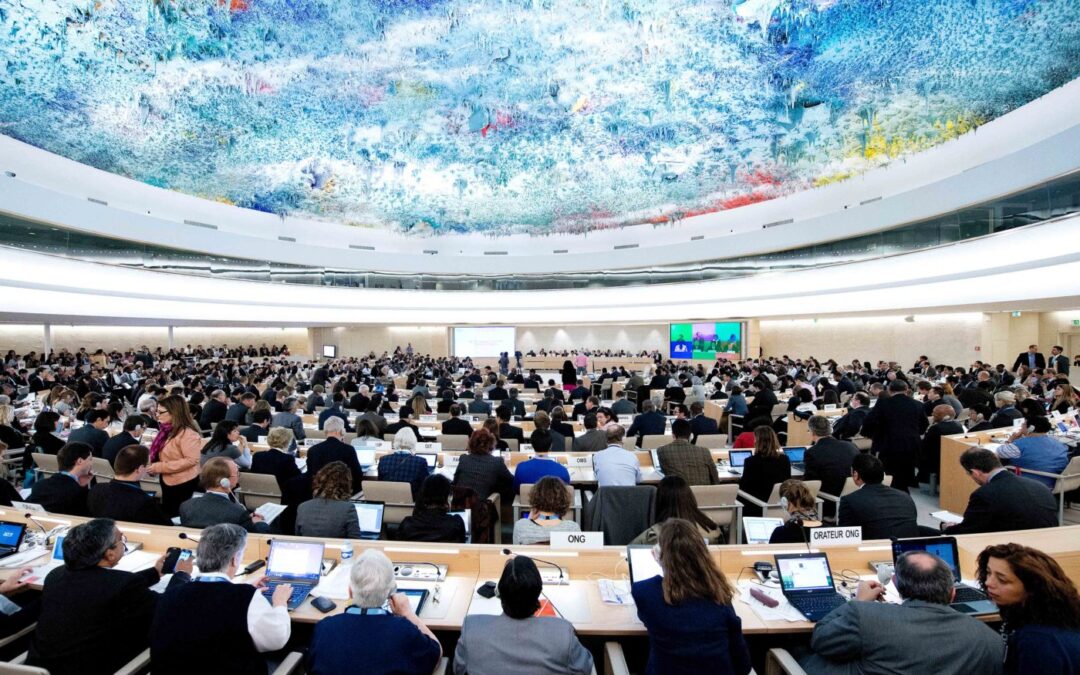
Sep 21, 2021 | Advocacy, Non-legal submissions
The ICJ expressed concern today at the use of abductions in national security cases in Turkey and the enduring impunity for enforced disappearances in certain Latin American countries, during the interactive dialogue with the UN Working Group on Enforced and Involuntary Disapparances at the UN Human Rights Council.
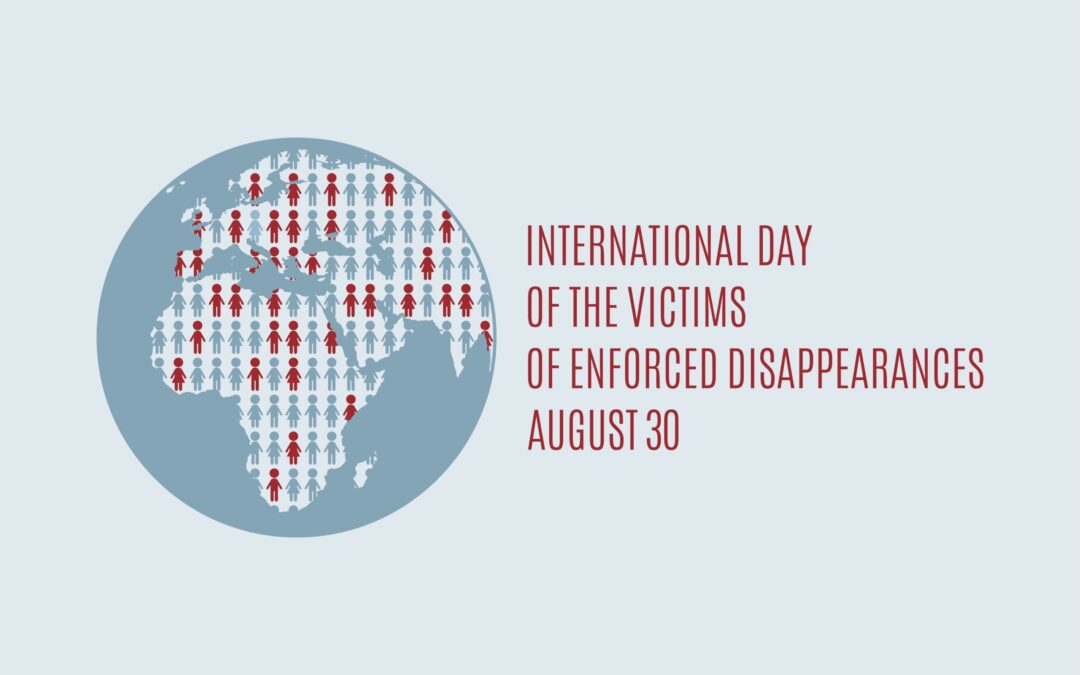
Aug 30, 2021 | News
Today, on the occasion of the International Day of the Victims of Enforced Disappearances, we the 33 undersigned local, regional, and international organizations, associations, and networks come together to highlight the dramatic and persistent nature of enforced disappearances in the Middle East and North Africa (MENA) region and the accompanying impunity enjoyed by perpetrators of these crimes throughout the region.
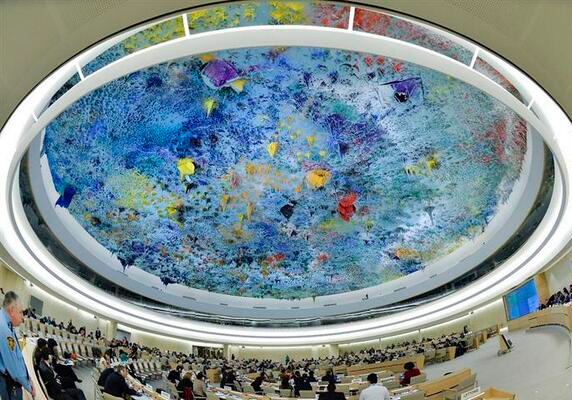
Mar 26, 2021 | News
In a joint communication to five United Nations Special Procedures, the ICJ and its partners urged the mandate holders to call on the Tunisian authorities to immediately stop hampering the transitional justice process.
The organizations expressed their concern at the ongoing attempts to undermine the transitional justice process and accountability efforts for past gross human rights violations.
“The Tunisian transitional justice process has been under serious attack since its inception in 2013. Today, the ICJ and its partners are urging the United Nations Special Procedures to take urgent action to deter such attacks, demand justice for the victims and secure accountability for the perpetrators,” said the Director of ICJ’s Middle East and North Africa Programme, Said Benarbia.
The joint communication highlights the following areas of concern:
- The recent political initiatives to dismantle the transitional justice process;
- The incessant attacks against the Truth and Dignity Commission (Instance Verité et Dignité, IVD) and its 2018 final report’s findings;
- The lack of support to the Specialized Criminal Chambers (SCC) and the numerous obstacles that risk to severely impair access to justice and effective remedies for victims of gross human rights violations.
The communication is addressed to the following United Nations Special Procedures:
- The Special Rapporteur on the promotion of truth, justice, reparation and guarantees of non-recurrence;
- The Special Rapporteur on torture and other cruel, inhuman or degrading treatment or punishment;
- The Special Rapporteur on the independence of judges and lawyers;
- The Working Group on Arbitrary Detention; and
- The Working Group on Enforced or Involuntary Disappearances.
The communication was submitted jointly by the ICJ along with:
- The World Organisation Against Torture (OMCT)
- The Ligue tunisienne des droits de l’homme (LTDH)
- The Forum Tunisien pour les Droits Economiques et Sociaux (FTDES)
- Avocats Sans Frontières (ASF)
- The Association of Tunisian Magistrates (AMT)
- Al Bawsla
- International Alert
- The Association KARAMA
- The Association INSAF pour les anciens militaires
- No Peace Without Justice
- The Organisation Contre la Torture en Tunisie (OCTT)
- The Organisation Dhekra we Wafa, pour le martyr de la liberté Nabil Barakati
- The Coalition Tunisienne pour la Dignité et la Réhabilitation
- The Association Tunisienne pour la Défense des Libertés Individuelles
- The Association des Femmes Tunisiennes pour la Recherche sur le Développement
- The Association Internationale pour le Soutien aux Prisonniers Politiques
- The Réseau tunisien de la justice transitionnelle
Contact
Valentina Cadelo, Legal Adviser, ICJ Middle East and North Africa Programme, e: valentina.cadelo(a)icj.org
Asser Khattab, Research and Communications’ Officer, ICJ Middle East and North Africa Programme, e: asser.khattab(a)icj.org
Download
Tunisia-Special-Procedures-Joint-Submission-2021 (PDF, in French)
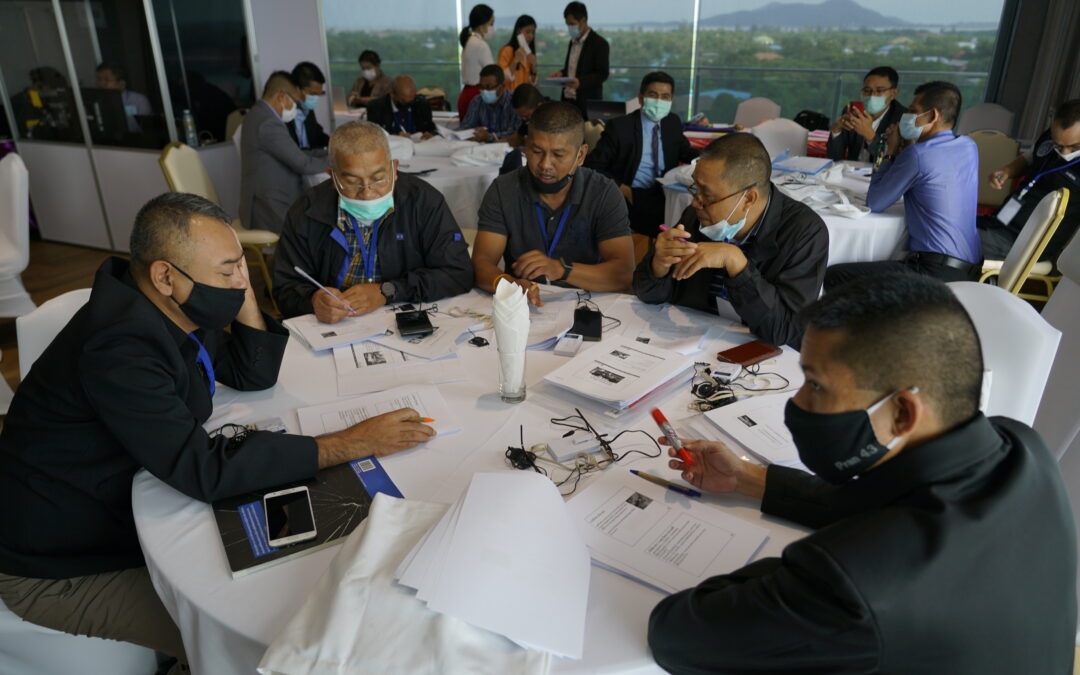
Mar 1, 2021 | Advocacy, News
Between December 2020 and February 2021, the ICJ co-hosted a series of workshops for government authorities, medical professionals and lawyers in the southern border provinces of Thailand on how to conduct investigations into alleged unlawful killings and enforced disappearances.
Thailand’s southern border provinces of Pattani, Yala, Narathiwat and four districts of Songkhla have been affected by a longstanding ethno-nationalist insurgency, which has involved conflict between certain Malay groups and Thai military and security forces. Special security laws have been enacted and applied to the deep south. Over recent years, there are reports of widespread human rights violations, including violations of due process and fair trial rights, torture, ill-treatment while in custody, arbitrary detention and extrajudicial killings continue to emerge. Investigations into these allegations, prosecutions of perpetrators and provision of remedies and reparations to victims remain slow.
The first workshop was organized between 21 and 22 December 2020 in Songkhla province for authorities from Thailand’s southern border provinces. The event focused on how investigations into unlawful deaths should be conducted in accordance with international human rights law and standards, with a particular focus on the revised Minnesota Protocol (2016), which the ICJ assisted in producing.
The workshop was co-hosted with Thailand’s Ministry of Justice, the Embassy of New Zealand in Bangkok, and the United Nations Office of the High Commissioner for Human Rights (OHCHR). The participants included 48 judges, public prosecutors, police investigators, representatives of the Ministry of Justice’s Department of Special Investigation (DSI), the National Anti-Corruption Commission (NACC), the Narcotics Control Board (ONCB) and observers from the Internal Security Operations Command (ISOC) Region 4 Forward.
The second workshop was organized on 23 and 24 December 2020 in Pattani province for medical professionals in the same region. The event introduced participants to the international human rights law and standards governing the effective investigation and documentation of torture and other ill- treatment, including the revised Minnesota Protocol (2016) and the Istanbul Protocol (1999), and emphasized the important role of medical professionals in the documentation of torture.
The workshop was co-hosted with Thailand’s Ministry of Justice and the OHCHR. The participants included 28 medical professionals from district and military hospitals and detention centres.
Between January and February 2021, the ICJ also developed training videos for defence lawyers and civil society representatives in the southern border provinces. The videos focused on the use of forensic evidence in cases of alleged unlawful killings and how international human rights law and standards, particularly the revised Minnesota Protocol (2016) and ICJ’s Practitioners’ Guide No. 14, can assist defence lawyers when preparing for criminal proceedings and challenging the forensic evidence of prosecution witnesses.
The project was jointly implemented with the OHCHR, Cross-Cultural Foundation, Muslim Attorney Centre Foundation and the Embassy of New Zealand in Bangkok. Participants included 21 defence lawyers and civil society representatives from Thailand’s southern border provinces.
Speakers at the three workshops included:
- Amornrat Lekvichai, Thailand’s Institute of Forensic Science;
- Badar Fafukh, Human Rights Officer, OHCHR Regional Office for South-East Asia;
- Duangsamorn Chudeechan, Thailand’s Institute of Forensic Science;
- Duarte Nuno Vieira, Full Professor, Faculty of Medicine, University of Coimbra and Chairman of the Scientific Advisory Board of the International Criminal Court;
- Gisle Kvanvig, Head of UN Police Secretariat, Norwegian Center for Human Rights;
- Howard Varney, Senior Programme Advisor, International Center for Transitional Justice;
- Ivar Fahsing, Expert on investigation and Human Rights, Norwegian Center of Human Rights;
- Porntip Rojanasunan, member of the Expert Advisory Panel of the revision of the Minnesota Protocol;
- Sanhawan Srisod, ICJ Associate Legal Adviser;
- Stephen Cordner, Professor Emeritus, Department of Forensic Medicine, Monash University and editor of the Forensic Science sections of the 2016 Minnesota Protocol;
- Steve Wood, Senior Liaison Officer and Regional Coordinator, New Zealand Police National HQ;
- Stuart Casey-Maslen, Honorary Professor, Faculty of Law, University of Pretoria and Research Coordinator of the Minnesota Protocol;
- Thomas Wenzel, Full Professor, Faculty of Medicine, University of Vienna; and
- Vitit Muntarbhorn, Professor Emeritus, Faculty of Law, Chulalongkorn University and Former ICJ Commissioner.
The workshops are part of the ICJ’s ongoing efforts under the Global Accountability Initiative to ensure the domestic implementation of international law and standards on the investigation of potentially unlawful deaths and enforced disappearances.
In Thailand, since 2017, the ICJ has held several national and regional-level workshops on the same topics with justice sector actors, defence lawyers and civil society representatives.
Contact
Sanhawan Srisod, ICJ Associate Legal Adviser, Asia & the Pacific Programme, e: sanhawan.srisod(a)icj.org
Kingsley Abbott, ICJ Director, Global Redress and Accountability; e: kingsley.abbott(a)icj.org
See also
Thailand: launch of the revised Minnesota Protocol









